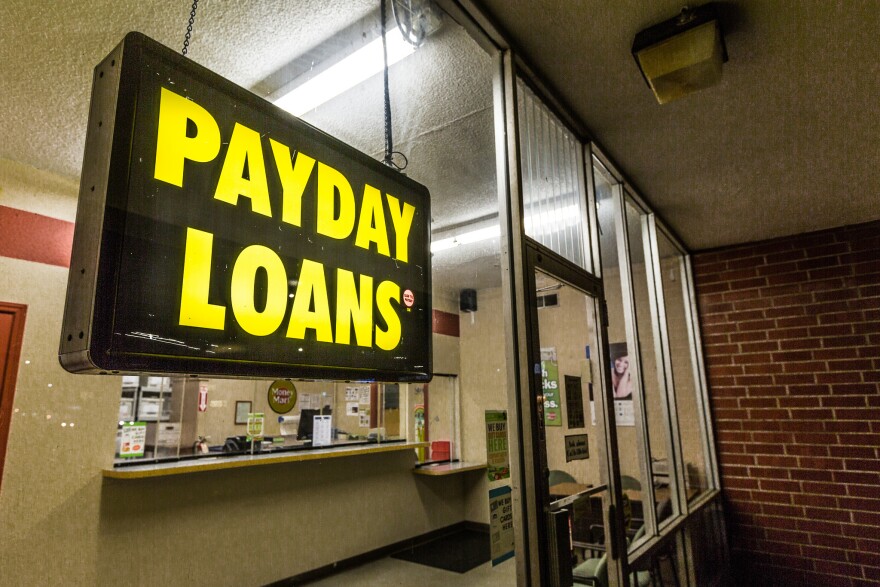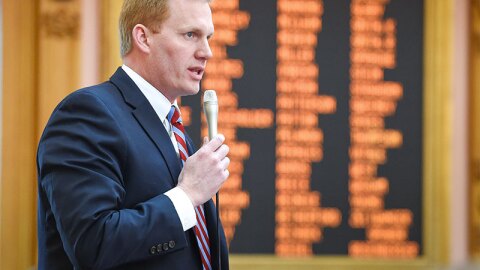A bill to overhaul the payday lending industry in Ohio is heading back to the House after the Senate approved the legislation with some changes. Consumer advocates are touting this as sensible reform while lenders argue this will put them out of business.
What seemed like an issue that was stuck in neutral has moved through the Ohio Senate. Now, the payday lending bill has one more step before getting sent to the governor’s desk.
In a surprise move, the Senate rolled out new language to the payday lending bill that only made minor changes to the legislation. The bill is labeled by supporters as a comprehensive overhaul to the industry.
Leading the charge for the bill is the Pew Charitable Trusts, which advocates for better financing situations for low-income people.
The group’s Nick Bourke says the bill as passed would make Ohio a role model on this issue.
“You need to have affordable payments, a reasonable time to pay, and prices that, yes, are higher than what you might see on credit cards but lower than what you tend to see in payday loan markets and definitely much lower than what you see in Ohio today,” Bourke says.
The Senate's changes raise the maximum payday loan amount to $1,000. The bill also caps the principal and fees on those loans at 7 percent of the borrower’s monthly income, and says total costs, meaning fees and interest rates, cannot be more than 60 percent of the original loan.
A Complicated History
The payday lending crackdown passed the House without any changes to the original bill, which is unusual.
Lawmakers voted it out of committee not long after Speaker Cliff Rosenberger resigned amid reports of an FBI probe into his travel with payday lending lobbyists. He maintains he’s done nothing wrong.
The final vote in the House had to wait until after they elected a new Speaker, state Rep. Ryan Smith.
Pew has said Ohio has the highest payday lending interest rates in the nation – averaging 591 percent. Bourke argues that the current payday lending model in the state leaves people vulnerable to predatory lending.
“People get harmed, people often find that they need or want to borrow money to make ends meet and pay bills and that can be ok, credit can help but only if it’s structured the right way,” Bourke says.
But payday lenders take exception to those claims. Ted Saunders is CEO of Community Choice Financial, the parent company of CheckSmart, which has more than 90 storefronts in Ohio. Saunders argues that credit unions can thrive under the current language while payday lenders are penalized.
“You notice there’s no prohibition on charging customers any other fees if you’re a banker credit union, but I’ve noticed in here that I as a licensed check casher, if I want to deliver this loan in the form of a check, I’m capped at $10. Why me?” Saunders says.
He claims that he and the rest of the payday lending industry were left in the dark as the Senate crafted the new language.
Debate In The Senate
Republican state Sen. Scott Oelslager took exception to that accusation. Oeslager held five hearings on the bill before drafting changes and notes that the hearing room has seen many payday lending representatives from the start.
“So you and your people and your numerous, numerous, numerous, numerous lobbyists have been very much involved in this from the very beginning, so the chair does not accept your premise about the process,” Oelslager says.
Nine Republican Senators voted against the bill, including state Sen. Bill Coley, who has been an ardent supporter of the payday lending industry. He was tough on supporters of the bill, defending lenders during his line of questioning and proposed several amendments to the Senate’s version. He echoes the payday lending supporters who say this bill will make it unfeasible to operate storefronts.
“Guys, this bill will help no one," Coley says. "The better alternative is to let us get into the room with the people who are interested and who are on ‘Main Street’ and lending money."
Consumer advocates argue that lenders in Ohio are able to operate many stores in Colorado, which has tougher laws than the ones proposed in the bill.
The bill now goes back to the House which can either agree with the Senate’s changes or go into a conference committee. The House passed the original language overwhelmingly.





